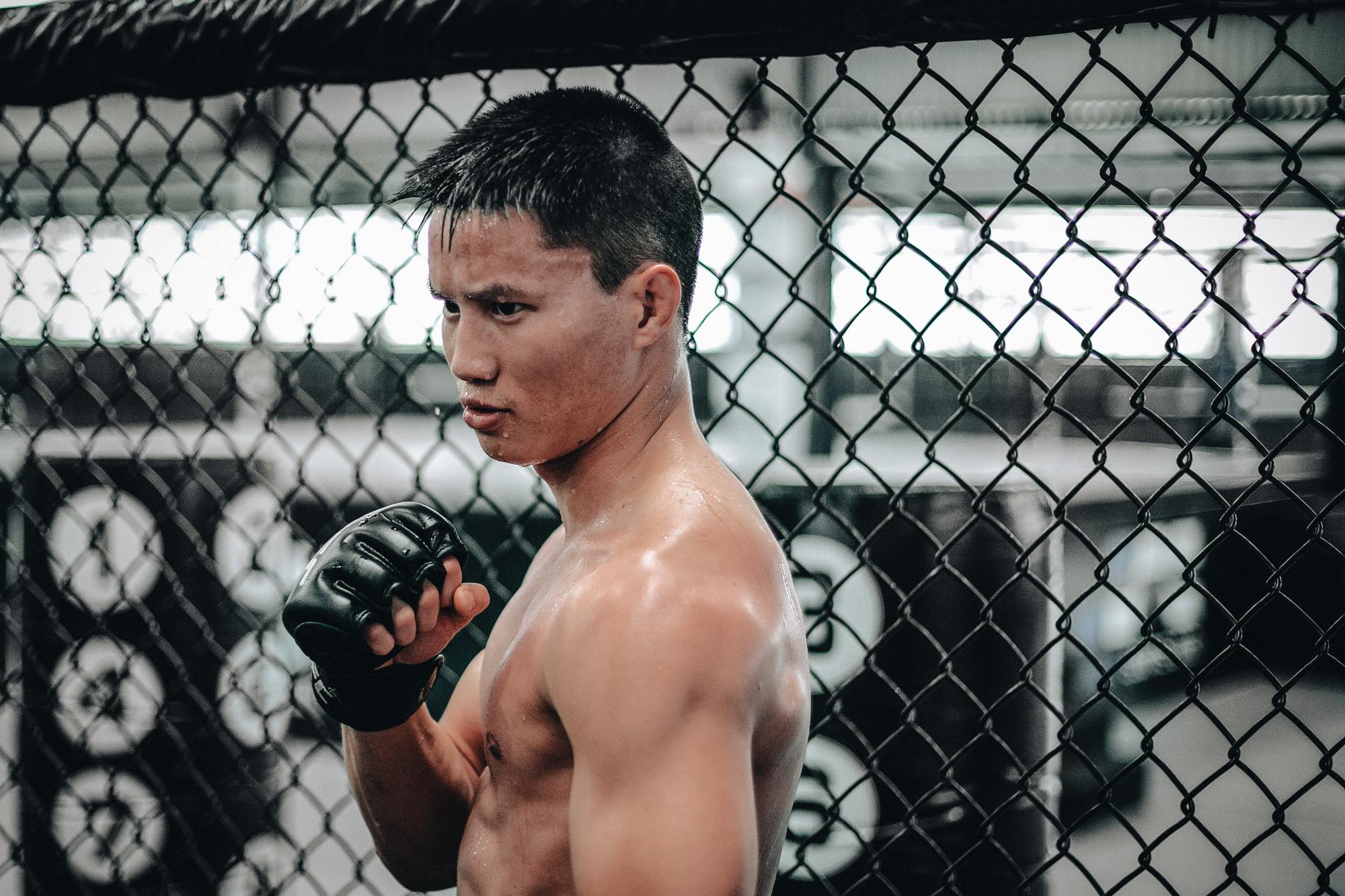As athletes from Southeast Asia achieve greater sporting feats, and countries like Singapore, Malaysia, and Thailand clinch more medals in international competitions than ever before, it begs the question—can Vietnam rise to the same level?
Right now, there are plenty of reasons to be optimistic. The launch of the inaugural Ho Chi Minh City International Marathon, which saw the participation of 44 countries and more than 5,000 athletes, suggests the country is tuning in more seriously to international-standard sporting events. Not to mention, Manchester United icons Ryan Giggs and Paul Scholes are currently in Vietnam to train a crop of international competition-ready local footballers.
But, who are the athletes that will lead Vietnam to global recognition? We met with one Vietnamese-American sportsman who’s out to do just that—Ben Nguyen. Ranked 8th in the world in the Ultimate Fighting Championship’s flyweight division, Ben Nguyen is a mixed martial artist making inroads into the division. Currently based in Brisbane, Australia, we met with Ben on his recent visit to Ho Chi Minh City. We wanted to understand what it was like growing up as one of the few Asians in America’s Midwest, the challenges of competing at the highest level in one of the toughest sports imaginable, and how he feels visiting Vietnam.
What was it like growing up in Sioux City, South Dakota? Yours must have been one of the only Vietnamese families out there.
The Asian population of South Dakota, where I was born and raised, is something like less than half a percent of the overall population. And of course, the number of Vietnamese is much smaller than that. The vast majority of South Dakota is Caucasian. So growing up, I was the only Asian in my class; sometimes even the only student from an ethnic minority. However, despite all that, I never felt uncomfortable growing up there. Everyone is kind and caring—in a Midwest sort of way.

How long have you been pursuing mixed martial arts?
After high school, I was on track to start a career in information technology, although I knew deep down I wanted to be a mixed martial arts fighter. I first started training when I was twelve. I got bullied a lot when I was young and my mom decided to enroll me in Taekwondo classes.

I started to train in mixed martial arts when I was eighteen years old. A few years later, I committed to trying to make a living doing what I loved. Naturally, the next step was to get into the ring and see how far I could go. I fought for eight years for next to nothing. I was doing it just to make a name for myself. Finally, one day I was called up to the UFC after the video of me knocking out that tattooed guy, Julian Wallace, went viral. After that happened, more opportunities started to come my way and today, I’m lucky enough to be fighting at a high level in the UFC.
How has your perspective of America changed after living abroad and visiting Vietnam?
Leaving the Midwest opened my eyes. I’ve had the chance to see what life is like in a developing country. It’s been a humbling experience, to say the least. I lived in Thailand for a while and I visit Vietnam often. In both countries, I’ve seen how the less fortunate live their lives. It’s part of what keeps me motivated—there’s always someone who is worse off that you are. That’s what keeps me going.

How has your perspective of Vietnam changed over time?
When I was growing up in the Midwest, whenever someone mentioned Vietnam, I imagined a place a lot less advanced than America. Though after visiting and working here several times now, I’ve realized that my impression of the country was way off. Vietnam has become more internationalized and I find the country to be surprisingly globally minded.

Have you thought about living in Vietnam?
Yes, I’ve put lots of thought into it. People tell me Ho Chi Minh City is an amazing place to live. A lot of my extended family is in Vietnam and it’d be nice to get to know them better. Part of me really does want to connect to my roots and become more immersed in the culture. But I have too much going on in my home base of Brisbane right now.

Have there been any opportunities you’ve discovered as a Vietnamese overseas?
In the last year or two, I’ve developed quite a few connections in Ho Chi Minh City, particularly at Saigon Sports Club. Earlier this year, I was able to put on a seminar here. It was rare for an international mixed martial artist to come by and host a seminar at the club. Seeing the excitement and the buzz from the crowd instilled a real sense of connection in me. Being able to create that kind of relationship with the Vietnamese people really hit me hard, and that particular experience still resonates very strongly with me. It really made me feel at home here.

Have there been more Vietnamese people getting into mixed martial arts in recent years?
Surprisingly, yes. In recent years, many more Vietnamese people have been moving into mixed martial arts and jujitsu. Since we’re such a small minority throughout the world it’s refreshing to see the interest grow. It’s about time Vietnam has someone representing them in niche sports like mine. That’s part of what I’m here to do.

And, lastly, how’s your Vietnamese?
It’s a bit spotty, to be honest—but it’s definitely something I want to get better at in the future. I can understand quite a bit, but speaking is another story—I’m kinda shy about it. Give me a few more years and trips to Vietnam and maybe I can do a public interview in Vietnamese. That would be a great achievement for me.
Related Content:
[Article] Triathlete Lam Tuc Ngan On The Way To The World Championships
